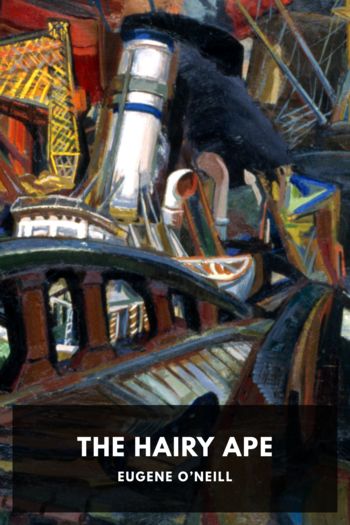The Atmospherians Alex McElroy (i like reading .txt) 📖

- Author: Alex McElroy
Book online «The Atmospherians Alex McElroy (i like reading .txt) 📖». Author Alex McElroy
Before eating, he liked to make a “toast to the family.” He would stand and tap his glass with a knife, then say something like, “Your mother and I love having you here,” his tone uncannily taut between jest and sincerity, before naming specific things he appreciated about us. We applauded his toasts out of respect for his grief and out of our own selfish desires to eat the food he prepared—food that Dyson never ate out of fear of putting on weight.
Though provincial by birth, we all considered ourselves the most cultured teenagers in our town, the ones refined enough to be embarrassed by our provincialism and desperate for more civilized lives. We listened to NPR in our cars and drove forty minutes for sushi—though we ate only California rolls. We memorized the dates of exhibits at the Tate Modern and Louvre and wistfully regretted missing them. We wished we had money to go see the new show in the city, the one reviewed in the Times. We considered taking up smoking. We considered snorting cocaine. We watched films in translation and argued over what they meant and agreed they didn’t mean anything: that was the point! We longed for ennui and weariness, but what we felt was a deep, gullible passion for anywhere else splashing inside us like a puppy in a pool.
Dyson’s dinners offered outlets for these urges. Neglectful parenting had made him an adventurous cook. He ripped recipes from sophisticated international cookbooks, bought spices online to make dishes we couldn’t pronounce. His beef filets were served luxuriously rare, flooded with blood and peppered to perfection; he caramelized cauliflower in the broiler, shaved pistachio dust overtop; on an icy Friday in November, he made a kimchi stew so spicy we glugged a whole gallon of milk to lessen the burn, though we found the burning sensation nourishing and traditional, so we returned our spoons to the bowl; he slathered rich, delicate cream sauces over linguine and pillows of chicken, parsley fanned at the edge. We paired the dishes with appropriate wines (purchased by Dyson’s mother) and drank just enough to get tipsy, like sophisticated adults, discussing one-act plays the drama kids longed to perform. Joining Dyson’s fantasy family was a worthwhile price to escape from the families we had.
The omelet he made for me, that first morning at The Atmosphere, was simple but delicately fluffy, the peppers, onions, and spinach not a smidge overcooked. I ate in a daze of hunger without realizing he didn’t have an omelet of his own. I apologized for not waiting.
“I have mine,” he said. Slim wafers were stacked on a napkin on his side of the table. “In the mornings, I try to stay light. It helps me think.” He dunked a wafer in coffee and brought the dripping disk to his mouth.
Later that morning, during Dyson’s daily swim, I hunted for service deep in the woods. I told myself I was taking a forest bath to empty my mind—and I would tell Dyson this, too. I wanted to make my body permeable, to blend with the branches and soil and birdsong and sun until I dissolved into my surroundings, past and present and future.
There was a small snuffed fire near the shore of the pond. We’d roasted marshmallows last night, and my hair still smelled maddeningly of woodsmoke. Dyson had downed an unusual number of marshmallows, nearly a full bag, often without even roasting them, stuffing his mouth like a science experiment—but, as I suspected, a mound of spit-out marshmallows was piled in the dirt. My chest tightened with guilt. I kicked leaves over the mound, covered it fully. Marshmallows are pure sugar, I assured myself. Dyson’s doing what’s right for his body.
At the edge of the woods, the tree line loosened, cars zippered past on the road. A carnival of notifications flashed on my phone: photos of American-flag-painted Uzis and half-erect cocks and fully erect cocks and my body teetering from the loop of a noose made from an American flag and my face painted like a clown and my face inside a large bowl of blood and messages reading U suk and die and fuck yourself with a fire. Plus an ocean of voicemails promising to kill everyone I had ever loved if I didn’t kill myself first.
No familiar names interrupted the clutter of threats. Even after three months of silence, I remained fastened to the hope that someone would apologize to me: Cassandra or Blake, preferably, but I would’ve settled for a former subscriber. Yes, I had Dyson, the one person who had come looking for me, and though I was grateful for his support, it didn’t compare to Cassandra’s future remorse. I continued scanning the messages for familiar names despite how frightened the messages made me feel, because not reading meant resigning myself to the silence. Resignation, I told my clients, is a terminal illness. It spares nothing once it invades.
A man’s voice called, “Hello!” He was too far away to see clearly.
I wore only running shorts and a loose gray sweatshirt. The closest thing to a weapon I had was my phone. I ducked behind a tree and clenched my phone like a rock, ready to fling it.
The man crunched out of a thicket of trees holding a rifle over his head. He wore corduroy pants and a red windbreaker. “Don’t be afraid,” he said. “I’m not looking for





Comments (0)